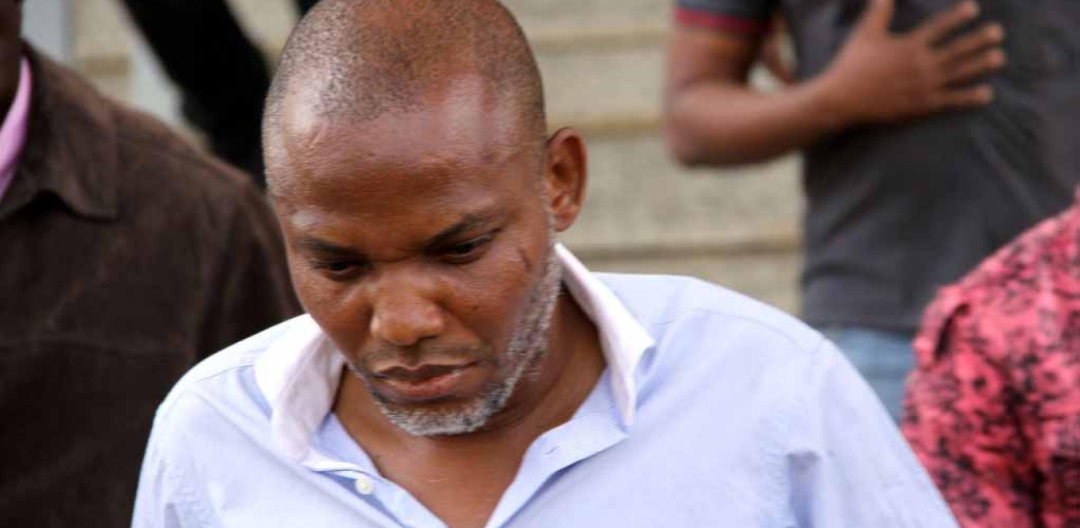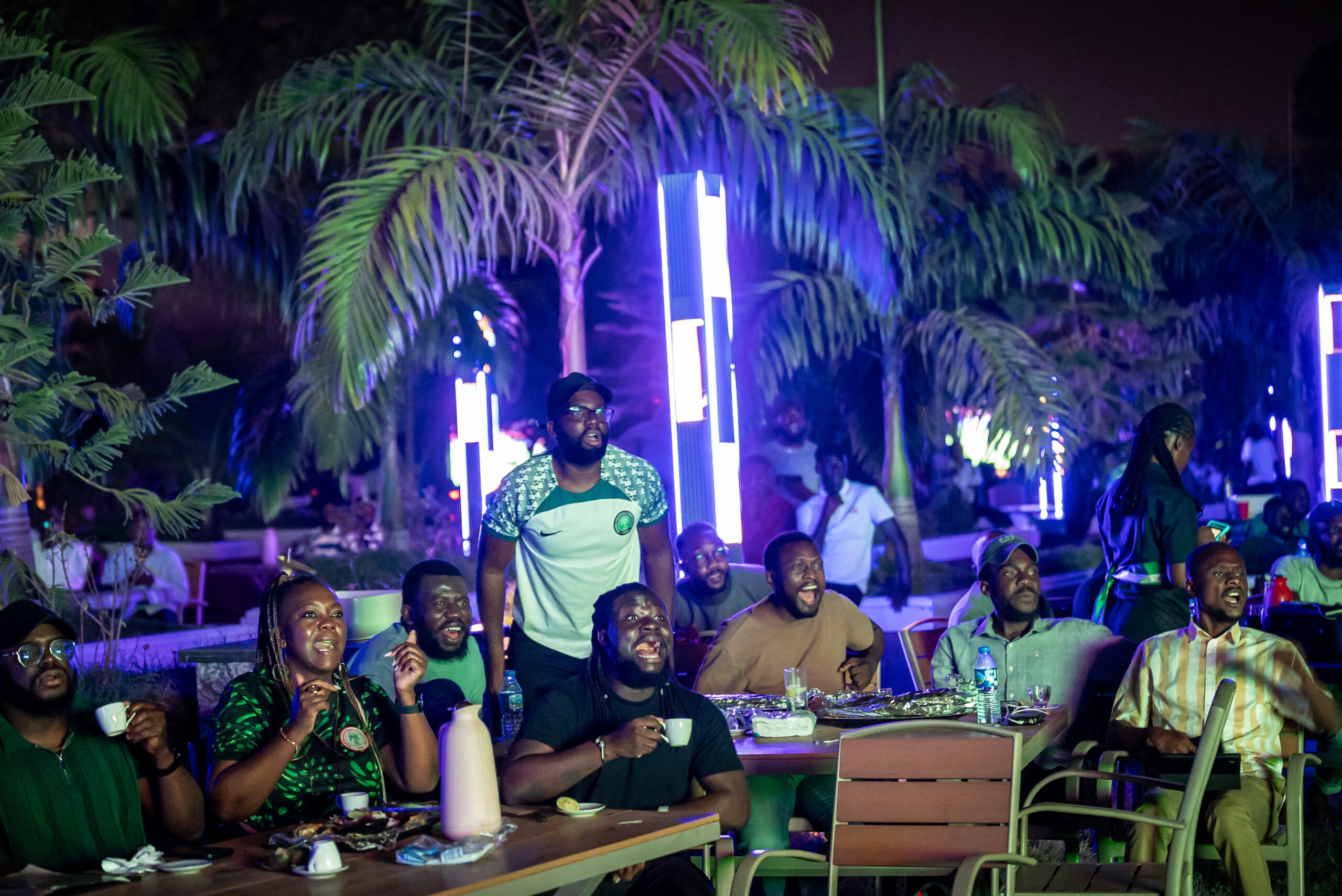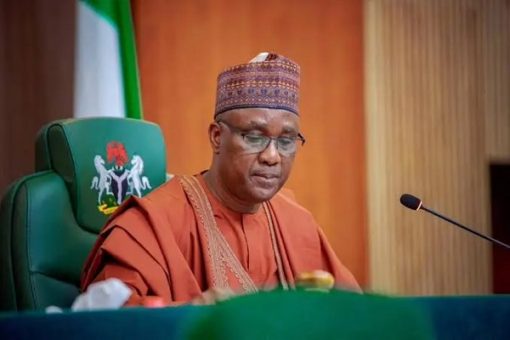Nnamdi Kanu sentenced to life imprisonment for terrorism

The Federal High Court in Abuja has sentenced Nnamdi Kanu, leader of the proscribed Indigenous People of Biafra (IPOB), to life imprisonment after finding him guilty of terrorism charges brought by the federal government.
Justice James Omotosho convicted Kanu on all seven counts, which included issuing sit-at-home orders that resulted in economic losses and the deaths of innocent people in the South-East, being a member of a proscribed organisation, committing acts of terrorism, and threatening those who refused to obey his directives.
The court also found him guilty of inciting the killing of Nigerian security personnel and making broadcasts calling for people to be killed.
In addition, Kanu was convicted of committing an act of terrorism “against the Federal Republic of Nigeria by threatening that people would die and the world would be at a standstill” during a live broadcast.
“The court is minded to send the convict to death given the atrocities he has committed,” Justice Omotosho said, noting that Kanu had shown no remorse for his actions.
He, however, cited biblical verses to “show mercy” to the convict, stressing that the death penalty was increasingly frowned upon globally. He therefore sentenced Kanu to life imprisonment on counts 1, 4, 5 and 6 instead of imposing a death sentence.
On count 3, he sentenced him to 20 years without an option of fine. The same sentence was handed down on count 7. All sentences are to run concurrently.
Omotosho noted that Kanu still displayed a tendency towards violence and ordered that he be kept in any correctional facility in the country, with strict prohibition from accessing any digital device.
The judge acknowledged that Kanu was a “freedom fighter” seeking liberation for his people, but said he was also a terrorist “who must be treated as such.” According to him, Kanu had “done more harms to his Igbo people he was fighting for than good.”
“Mr Kanu knew what he was doing, he was bent on carrying out these threats without consideration to his own people,” the judge said.
He held that the prosecution’s evidence was “credible, cogent, and uncontroverted,” and that the accused failed to disprove any of the claims.
“His (Kanu’s) agitation (is) in the states of South-East, South-South and some Middle-Belt, and he is doing so using terrorism as a weapon. Terrorism has become a monster in the world today, and several groups have continued to use this as a form of weapon to form a separate government.
“Groups like Boko Harm, Lakurawa, IPOB, and in recent years troubled Nigeria with terrorism activities. These terror groups, by their activities, are denying innocent people the enjoyment of their fundamental rights.
“The action of the defendant and his terrorist organisation has led to the bloodshed of innocent citizens and security personnel who were going about their legitimate duties. His incitement through his Radio Biafra, as well as social media of the group, has led to the loss of innocent lives,” the judge reasoned.
He emphasised that the court had given Kanu the opportunity to defend himself, but he refused to do so.










